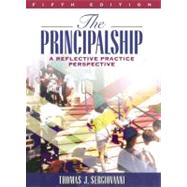“The overall approach is very accessible for students. The link with standards is clear and students will be able to see how these standards relate to their future position.”
Suzanne Gilmour, SUNY Oswego
“This text fits well with the strategies for teaching educational leaders, specifically those headed toward or already practicing as site principals.”
Mary K. McCullough, Loyola Marymount University
New to this edition:
- The importance of instructional leadership is illustrated by focusing on the principal's role in helping to plan, provide, and supervise teaching and learning.
- Case studies of effective schools show how to involve students in the decision-making process.
- The building of communities of practice and shared leadership throughout the school is offered as a way to move beyond collegiality to the development of a shared practice that is more effective for student achievement.
- Emphasis is placed on the development of smart schools where individual intelligences are aggregated.
- A “Some Reflections” section is added to nearly all of the book's chapters providing readers with a shared experience that will enrich classroom discussions.
- Views of the principal's job and the nature of today's context for leadership have been thoroughly updated.
- New definitions of school effectiveness are included, as well as a new view of the process of change, discussion of school character as an ingredient in school effectiveness, and diversity as a part of community building.
Package this book with MyLabSchool at no additional cost! Order Valuepack ISBN: 0-205-46780-6








